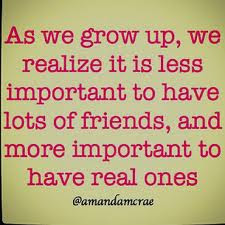Tuesday, February 14, 2012
Mystery—How Do You Define Numbers
MV Conversation Continues
Future Time
“So tell me,” said MV, did your physics professor friend get back with you after reading your letter?”
“No, I think he was too busy with other things, more important things,” I replied. In fact, after my presentation, all communication between us stopped. I would see him from afar once in a while, but I never tried to talk to him. He was a very private person. It’s true, he probably did humor me by answering my questions in the beginning, but I don’t believe that had anything to do with why we stopped communicating.”
“Hmmm, but he did stop, right! Maybe he just wasn’t impressed with your ideas,” responded MV. “Did that thought ever occur to you?”
“No, I believe he really did have more important things to deal with,” I replied. “Well, all except for that one thing; there was another physics professor, one that always seemed to be talking to Dr. Clifford every time I went into his office. I believe he resented all the face time Dr. Clifford was kind enough to grant me. Every time our paths would cross on campus that Professor would either look away or sneer at me, well, at least it looked like a sneer to me. I never did figure out what all that was about, but I suspect that that Professor had something to do with the end of my relationship with Dr. Clifford.”
“So why do you believe there was more to it than that; what was more important to Dr. Clifford than answering your letter?” said MV.
“As I was saying, talking to anybody about quantum mechanics, for me, was exciting, but talking to a Professor who taught the subject was more than exciting, it was fantastic. However, when those conversations took place, I couldn’t help but pick up on the tension that Dr. Clifford was experiencing at the time. When I couldn’t understand what he was saying, I would make some off the cuff comment voicing my frustration, and he would come back with an example of the kind of frustration he had to deal with all the time. In addressing my frustration he would cite examples in his own life that were extremely frustrating—his comments betrayed the fact that he was having marital problems. He was, at the time of my presentation, contemplating divorce. Soon after my presentation, I believe, that is what happened. So you see he had many more important things to worry about than some kid pestering him over a few hypothetical questions concerning quantum mechanics. Anyway, I had already moved on in my thinking and began writing a paper on why I believed the universe was inherently rational.”
“Are you kidding me,” exclaimed MV. “Your mentor, someone who had more rationality in his big toe than you will ever possess, is having an emotional breakdown and you, arrogant as ever, continue to believe in a rational universe. How absurd, how sublime! That’s my boy, keep it up; keep me smiling and we may be friends after all--or maybe not!
“Hey, you didn’t let me finish. I didn’t complete that paper,” I responded. “I realized that mathematics was telling me something else. I realized I had to rethink my philosophy.”
Mystery—How Do You Define Numbers
Searching For A Philosophy
Aug. 6, 1981
What if the self that we identify with, the one expressed in the word
"I," is something different from what we think it is, something that
once it becomes identified, will entail bold implications, not just for
psychology, but also for everything that we know and understand?
An Inherently Rational Universe
In my presentation on the different contexts of freedom, I was,
basically, agreeing with Northrop's realistic interpretation of how
mathematical constructs are found to correspond with a real, knowable
aesthetic universe. As Goethe emphasized and Northrop concurs, the
cosmos is like a living organism even though law governs it. In other
words, I was trying, in my presentation, to make sense out of the
broad generalization that the universe is inherently rational. Support
for this idea can be found in many areas:
In Jean Piaget's exploration of cognitive development in children, and
in Ernst Cassirer's investigations—especially in his study of aphasia
(Cassirer, 1957, p. 205-77), this idea does indeed find support. In
fact, setting in front of me right now is a magazine article entitled,
"The Wisdom Of Babies" (Newsweek, 1-12-81). It strongly suggests that
an awareness of self is somehow embedded in the mind of babies. The
article states: 1) Babies quickly develop the notion of `self'—of
being different from other things in the world, which suggests that
the brain may be prewired for this concept. 2) Infants are born with a
set of dispositions, which may form the basis for symbolic thinking.
3) The belief that humans need language to make the mental leap from
the specific to the general is becoming more and more questionable in
that babies seem to be able to construct categories and make
generalizations. Could it be that at the time of birth information is
already being channeled by a set of rules? Perhaps, in the language of
mathematics we can find what we are looking for—precise definitions
for foundational rules.
Unfortunately, even in mathematics, foundational rules are hard to
come by. Part of the problem is that what gets called mathematics in
one culture is different from what gets called mathematics in other
cultures. The source of the problem—how do you define number—has
generated much controversy. In short, there is no agreement on whether
number refers to an idea or to a property of objects or to a pencil
stroke, and so on and so forth. Curiously, even with this hazy concept
of number, mathematics still provides the language for the most exact
of empirical disciplines—science. This problem has not gone unnoticed
by mathematicians.
Subscribe to:
Post Comments (Atom)






No comments:
Post a Comment